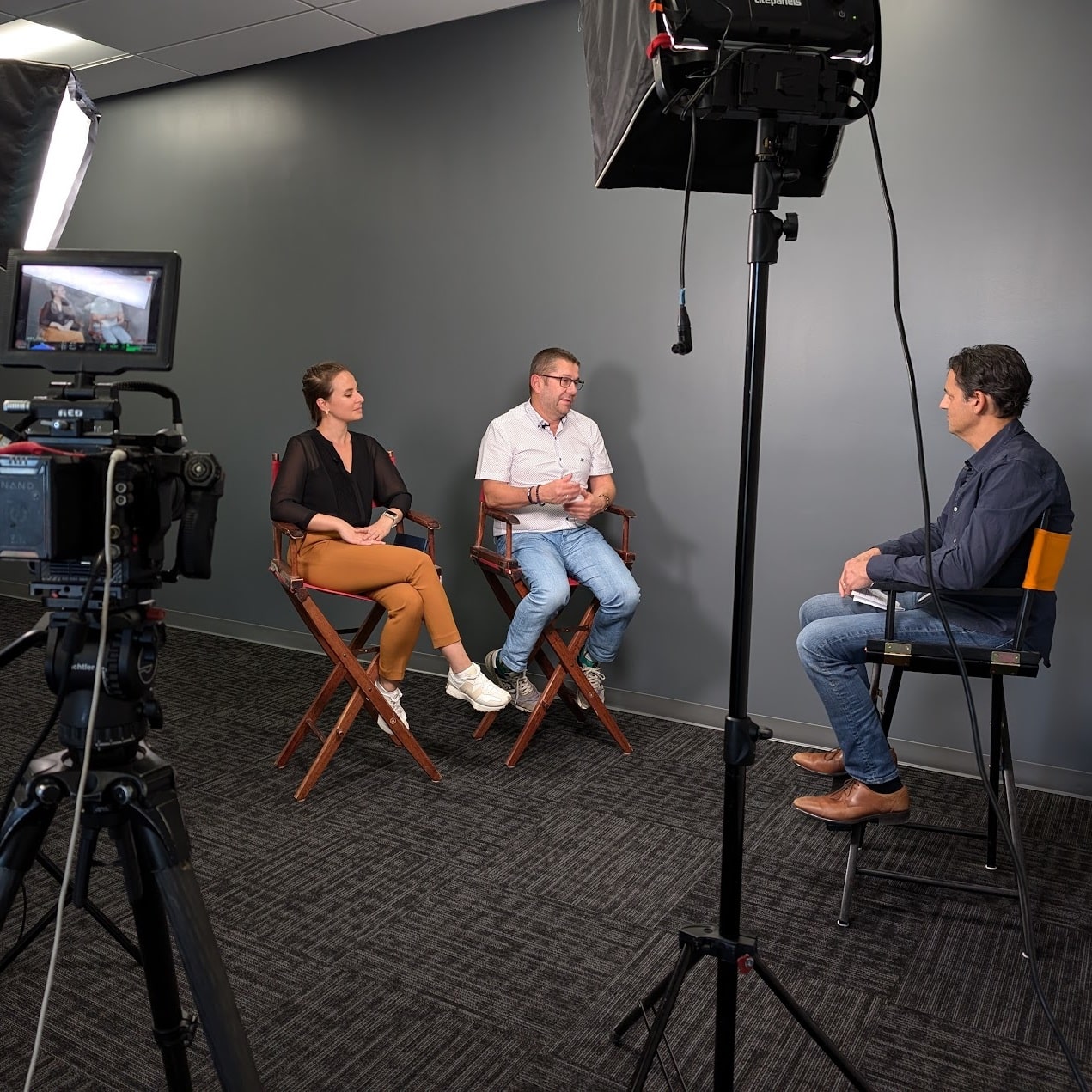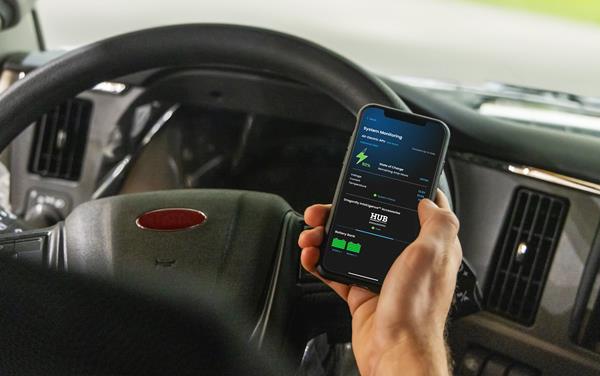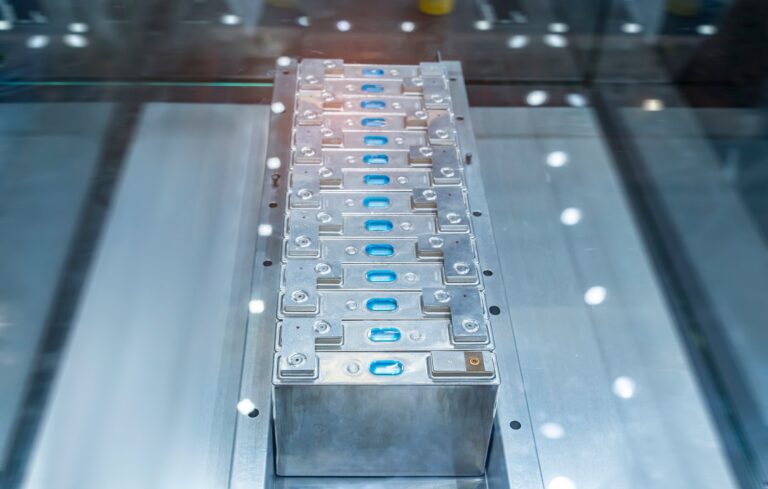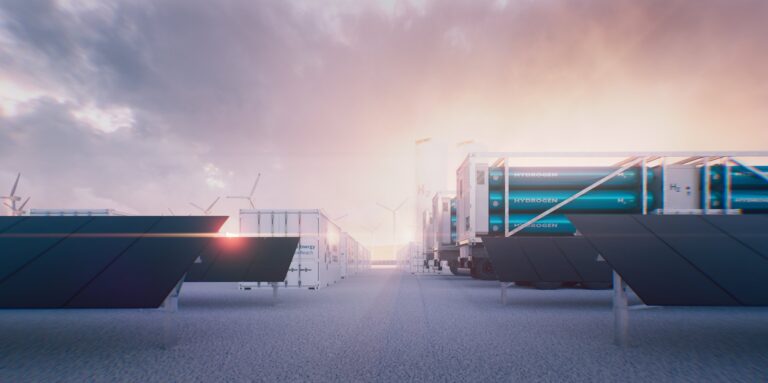Significant developments are reshaping the global energy sector. The newly established Upcell Alliance, in collaboration with Schneider Electric, is leading efforts to enhance the competitiveness of stakeholders in the battery manufacturing ecosystem. They aim to make energy more accessible by creating durable energy systems prioritizing local communities.
Building Partnerships for a Sustainable and Competitive Battery Industry
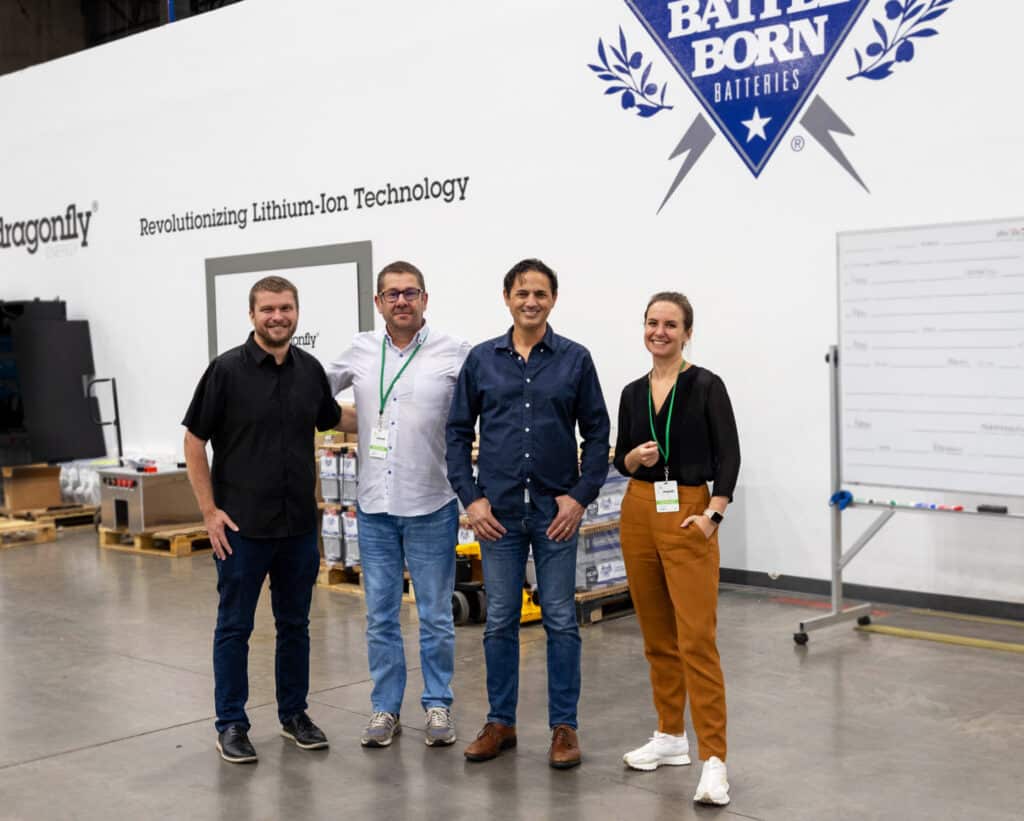
Upcell Alliance was established to “de-risk” the future of energy storage by fostering collaboration among stakeholders across the battery manufacturing supply chain, including machine builders, system integrators, and universities. Partnering with Schneider Electric to gain keen insights into the global battery ecosystem, Upcell Alliance is partnering with them in their mission to expand international access to electricity and green energy. Schneider Electric is a leader in energy management and a consumer of energy storage solutions. This dual perspective on energy empowers their proactive approach to strengthening battery manufacturing infrastructures in critical markets and their desire to establish partnerships worldwide.
In this episode of the Li-MITLESS ENERGY podcast, host Dr. Denis Phares sits down with prominent leaders from Schneider Electric, Claude Laperiere, Director of Global Battery Business IA and President of the Upcell Alliance, and Ingrid Leiser, Business Developer for Battery Manufacturing. They delve into Schneider Electric’s pioneering role in the battery industry and the establishment of the Upcell Alliance, a collaborative initiative designed to strengthen the battery manufacturing ecosystem across Europe and North America. Laperiere also describes Upcell Alliance’s efforts to ensure competitiveness and resilience in local battery manufacturing, highlighting the importance of developing a robust supply chain across regions.
Listen to the full episode wherever you stream podcasts and follow Schneider Electric’s latest technological advancements on Twitter, Facebook, LinkedIn, YouTube, and Instagram, as well as Upcell Alliance’s latest partnerships on LinkedIn.
Podcast Transcript
Denis Phares 0:11
Welcome to The Li-MITLESS ENERGY Podcast. I have a couple of guests today from Schneider Electric. I have Claude Laperiere, the Director of Global Strategy of the battery business, and Ingrid Leiser in Business Development for Battery Manufacturing at Schneider Electric. I’m also going to add, Claude, you are president of the Upcell Alliance. Batteries are big in Schneider Electric, and this evolved into the establishment of your brainchild; the Upcell Alliance. So, let’s start there. What is that?
Claude Laperiere 0:44
What is Upcell Alliance? Upcell Alliance is, at the beginning, we create Upcell for Europe. It was a European Alliance in order to give opportunity to European stakeholders, to be competitive and to be able to develop locally, things. But after a certain period of time, because we created Upcell 18 months ago, and after a certain period of time, we learned about the situation and we understood that the Europe only or alone will not be able to reach challenges. Then we decided to move step by step to a new direction where we identify the US country stakeholders like, let’s say, potential great partners, then this is why we decided to create Upcell Alliance in North America where it is something as we are doing now, again, to well manage and to secure the ecosystem of battery manufacturers. To be sure that our battery manufacturer in America, in Europe, will be able to be competitive, to exist, and to be, let’s say, profitable. And also, being sure that the entire ecosystem around the battery, I mean machine builders, system integrator, or university, the whole supply chain will be able to be invite, to develop, to grow together, and to be relevant.
Denis Phares 2:30
So, it’s pretty forward-thinking for a company like Schneider Electric, known for things all over the electricity space, to be, first of all, involved in batteries, but being so proactive in the whole supply chain. How does this make sense from a business development point of view to take the lead in something so, I guess, global?
Ingrid Leiser 2:50
Well, as you said, Schneider Electric is all about managing the energy. We talk a lot about empowering everyone, and more access to energy for everyone. So, it means also being sustainable, managing it well. And we provide so many different solutions for this, and we’re definitely one of the leaders for this. And it comes with a very wide offer, whether we’re talking about industrial automation, of course, but also simply software solution, digital, and so on. It makes sense also, as Schneider is global, and Schneider has a lot to offer in this industry, but Schneider is also a consumer, and needs also energy for storage, and when it comes to data centers, and ESS, and so on. So, I think it makes a lot of sense for Schneider to be part of this, as in we have the double vision of it.
Denis Phares 3:56
So, is it accurate to say that this is meant to de-risk things in the future for Schneider or Europe and the Western world as a whole? This is a de-risking mechanism because of the way that the battery industry is right now?
Claude Laperiere 4:12
It is exactly what we had in mind when we created Upcell. For Schneider Electric point of view, it was to be part about this story, to de-risking the situation, but also, let’s say, to start a collaborative mindset and ensure that is super needed and we don’t need to talk about geopolitical things. We discovered a lot of things during the COVID, and everything is not needed to talk about it, but de-risking and thinking also local for local is something super mandatory right now. We’re in just one planet, whatever the side of the planet you are located is the same. Then finding the way to collaborate, finding the way to be local for local when it is needed, and always thinking about, let’s say, success everywhere.
Denis Phares 5:13
So, the Alliance began 18 months ago, and right now it’s only in Europe, or are you planning… I know you’re planning to expand, right now it’s active in Europe?
Claude Laperiere 5:24
Right now, as we said, we started 18 months ago. Right now, we are one of the big leaders in Europe about alliances, but we already have something like 15 members in North America.
Denis Phares 5:41
I knew that because we are one of them.
Claude Laperiere 5:44
Yeah, I also think that you are one of those companies. We have approximately 15. And this is why right now we are starting, it was this Monday, something very new, the creation of Upcell Alliance in North America. We hired two talents, one very strong girl, his name is Julia, and a man, his name is Owen, and both will start this journey in America. And honestly, we are super confident about the fact that it will run super fastly, super efficiently because your country, America, is super impressive. You are definitely amazing entrepreneur. And all people, as we met, understood immediately the benefit of this story; to think globally, to think collaboration globally, but also to think locally.
Denis Phares 6:46
Right. So, if I can talk a little bit about what’s happening in the United States now, there’s obviously a strong push to de-risk because, right now, we rely a lot on resources and technology from Asia, particularly China. And so, what we are doing here, what the federal government has been doing through the IRA and the Infrastructure Act, is to basically try to put money into establishing the infrastructure. I don’t know how much has really been done here, to date, in terms of matching what they’ve achieved in China, technologically speaking, for batteries, for lithium-ion battery issues. I’ve spoken a lot about how I think that gap is a big problem. Can you address that, particularly through the Upcell Alliance in Europe? What progress has been made, and have you actually seen any results, any tangible results, in narrowing that gap?
Claude Laperiere 7:46
Yeah. It’s a very good question, and it is the core of the issue. When we started, when we had decided to create Upcell, we were sure about the fact that Europe will be able to do everything alone, without any stakeholders or machine builders from either Asia or China.
Denis Phares 8:07
That’s how you felt going into it.
Claude Laperiere 8:10
Yeah, but now we know that is impossible. It is impossible to do it, and it is also impossible to fully, let’s say, delegate the supply chain to Asia because it will be super risky, and it will also make no sense because in Europe and in America, we have a beautiful supply chain. We just need to help them to face this challenge. Then, where we are now in what we are believing now is that we need to put in place model, business model, who will permit us to stimulate collaboration between Asia and Europe, but in a fair way. We are on the way to create real companies who will do it, and those companies will be worldwide company. We are not sure about everything because it’s quite new. We just started this journey few days ago, but we believe that those company will be certainly located in America, but for a worldwide, let’s say, impact, and will move everywhere around the world, and use also supply chain companies from the world.
Denis Phares 9:29
So, you’re not necessarily trying to compete from a technology standpoint, you’re trying to leverage what has already been done, and maybe try to add to that through the Alliance, through collaboration?
Claude Laperiere 9:42
And we also believe that, about supply chain, it’s true that Asia have maybe 10 years or 10 years plus of innovation on supply chain, and we have a gap in Europe or in America of 10 years, something like this, but thanks to our universities, thanks to the efficiency of our supply chain, we believe that we’ll be able to fill this gap super fastly. And the only thing who will change the game is if we are able to find the way to create an overview amount where the collaboration of Asian machine builder, and European and American machine builder will be, let’s say, something native. If we are able to do it, it will work and it will be simple. We don’t see so much challenge. For us, the only thing with the big challenge, the only challenge, or the main challenge as we see is to help our battery manufacturers from Europe and from America, like Dragonfly, to be competitive, to survive, to grow, because without local battery manufacturers, it will have never any supply chain. And if we have stronger battery manufacturers locally, it will work. Then the challenge is this, and this is why we are super happy to be with you today in Dragonfly to do this podcast.
Denis Phares 11:16
Well, there are a number of European companies that have gone the gigafactory route, or at least announced it, between well-known ones, FREYR and Northvolt, that have faced headwinds, and I suppose, continue to face headwinds. Are there any success stories that you can point to today related or not related to the to the Upcell Alliance, but any success stories in the industry, in Europe in particular?
Claude Laperiere 11:47
Let’s say that Upcell Alliance helped few battery manufacturer and machine builder to do a success story. Main case is that those success stories are super confidential, and companies in general don’t want to share so much those things, but we did. But if I am honest, also with you, and I need to, I have to say that what we did with Upcell is, let’s say, a job to prepare the future. Because before to really start a gigafactory, or let’s say success stories like this large one, large scale, it is needed before to solve issues as we have with the supply chain. Because today, the reality is the supply chain is under China and South Korea, and only. Then without a solution, where we will have, let’s say, a consortium of global machine builder from the world, before having this running well, it will be super risky. And I don’t want to use names because it’s not our job to do it, but, unfortunately, in Europe, we have big stakeholders, big battery manufacturers who face super huge challenges with those supply chains. Then, first, what I believe, what we believe inside Upcell is, first, we need to solve this problem, propose an alternative. And after, really starting this process to have a success story. And, in my opinion, it is more or less the same situation in America.
Denis Phares 13:39
Mm-hmm. Yeah. Agreed. Obviously, there are headwinds, and a lot of it is due to supply chain and infrastructure. And we have lithium here, as there is lithium in Europe as well. And the timeline for getting permitted to get the lithium out of the ground and then setting up the plant, the mining plants is very long. I think we’re getting there here, w. We’re a couple of years away probably from the first new mines, because we’ve got one, the Albemarle mine here in Nevada. What is the situation in Europe when it comes to lithium supply? Is it going to be local? Is the timeline really long there, or is it all coming from here?
Claude Laperiere 14:27
Honestly, Ingrid and myself, we are not a super expert on this point, but what I am aware about it is the situation in Europe is quite the same. It’s a worldwide situation, and it’s a big shame.
Denis Phares 14:46
The resources is there.
Claude Laperiere 14:49
Yeah, the resource is there…
Ingrid Leiser 14:47
There are some projects out there and it’s moving, but every time we hear about it, it’s not there yet. It’s projects, of course, it takes time, it takes a lot of money and a lot of approval processes. And some projects, I can think of, it’s also a matter of there are some resources, but they’re not very much long-term. So, it’s all about how much can we do. And, of course, like you said, right now, the situation as of today, we’re relying mostly on other parts of the world, which is why the importance of innovation and finding new recipes, chemistries, and new ways to also do energy storage is so important. And, at the core, we can see a lot of this within Upcell Alliance, of course, in Europe. We meet many new companies really challenging this point, like, finding new resources and resources that much more accessible to do new batteries, and next generations, and so on.
Claude Laperiere 15:53
And I also believe that, about this point, it is a challenge as a company, a battery manufacturer like Dragonfly, or an alliance like Upcell cannot face alone. For me, this challenge is so strategic that… And then, because it’s so strategic, it is mandatory to have, let’s say, strong governments, like American government or European government, both working and thinking together, putting, let’s say, energy strategy. But I know that, in Europe, European Commission working a lot on it. I am not really able to see if we are in, let’s say, a safe situation right now, I don’t know, but it’s a super big challenge and government have to help us on it.
Denis Phares 16:50
Well, let’s move downstream because the push for better lithium technology and more lithium production here has been driven by electric vehicles, but you mentioned energy storage, which, from Schneider Electric’s point of view, I would imagine energy storage is the bigger driver than electric vehicles.
Ingrid Leiser 17:09
Yeah. IAs you said, we were also consumers for this. However, of course, Ev is a big part of this industry, and this is also a topic where Schneider is also willing to try and be part of the story. Not only because, of course, we can offer a lot of things for this industry, but with the whole drive from Schneider Electric to be a sustainable company, and accompanying and partnering with everyone who wants to make that change towards more sustainable solutions. So, we’re definitely part of both.
Denis Phares 17:47
Yeah. Certainly, for us, when we look at the technology to develop better batteries, or cheaper batteries, or whatever, when you think about electric vehicles and transportation being electrified, the grid is more of an afterthought. And the presence of Schneider Electric equipment on the grid, I would imagine, necessitates that being a big part of Schneider strategy is we need to bolster the grid, we need to allow the grid to strengthen to be able to electrify transportation. So, I imagine that is a big driver in really trying to push the entire industry forward, and that’s why Schneider Electric is supportive of this vision that you have. So, where do you see it going then? Where do you see the Upcell Alliance? Now you’re expanding, you mentioned Upcell North America, Upcell Asia. How does this look a decade from now?
Claude Laperiere 18:47
Yeah. It’s complex to really see where we are going, but what I can tell you is about Schneider Electric point of view, this topic of battery and energy management is just the core of our company. If we have two strategies, what we want to do is this. To be the worldwide leader about the energy management, and inside the energy management is definitely sure that the electrical car will be a big part, but the energy storage solution also it will be definitely something similar is sure. About Upcell Alliance for doing it, for sure, it is also the core of Upcell, and we created Upcell for this. We are thinking about creating something bigger on top of alliances, as I said, like turnkey solution companies, or, let’s say, laboratory universities, investment company, things like this. We are thinking on different scenario, but what we want is just to be sure that this business will be faced well, that the challenge will be fair, and also that it will be, let’s say, a success locally. For us, having one part of the world or two part of the world able to face the global needs would be a super bad scenario, and it is definitely what we don’t want to see.
Denis Phares 20:26
Yeah. Today, in order to get something up and running, you have to have access to so many different parts of the world, whether it’s resources, whether it’s South America, or equipment from China or North Korea. And so, it’s very much a notion of globalization. How does that fit into the current political landscape, where there’s more and more isolationism happening, both in the US and in Europe?
Claude Laperiere 20:57
It’s a complex question, but it is the target of Upcell to solve this problem. For sure, it will not be simple.
Ingrid Leiser 21:08
I have to say it also definitely resonates with Schneider Electric’s actions and philosophy. From my point of view, what I’ve seen in the company a lot is a lot of actions towards helping the local communities accessing energy, but also complete and stable access to energy, how to manage the energy well. So, there’s a huge involvement of the company everywhere around the world to help the local community. So, it definitely resonates also with this. And, at the heart of Upcell Alliance, it’s all about, as you mentioned, not being fully dependent on only one part of the world where you can have all the risks of supply chain, cultural differences, or another global pandemic, or where everything stops and on holds. So, it’s also to look at it as always having a plan B, if not A, and to make sure everyone collaborates as much as possible. First, locally. Yes, of course, taking the most of what you can do with other parts of the world, but making sure that, locally, you have something that works and that is durable.
Denis Phares 22:20
Yeah, I would imagine to the cost of energy, especially in Central Europe where there’s a lot of dependence on gas, and the supply chain disruptions associated with that has had or would be a significant driver in the continued facilitation for this sort of thing. Have you gotten a lot of response from governments in Europe? Any support or anything like that?
Claude Laperiere 22:48
They are fully in support what we are doing. They are extra supporter. And what we saw also is we had a lot of opportunities to talk to major stakeholders in Asia, China, South Korea, Japan. And more and more, we feel that, like us, they understood that they will have to collaborate. They will have to do, let’s say, common story.
Denis Phares 23:20
Rather than use it as a weapon or as something…
Claude Laperiere 23:24
Exactly. Let’s say, but the situation for me is very simple. And I love simple situation, I love to simplify things. But, for me, where we are today is if we continue like this, we will fight. Let’s say, continent will fight to each other. And if we start to fight like this, it will be, let’s say, a disaster for all. It’s sure. And then, because more or less all stakeholders understood it, let’s say, if they are realistic, they understood. And because the majority are realistic, they want now to start collaboration. And now what they are needing, okay, is to have, let’s say, a place, an environment where it will be possible to do it, and it is what we want to do inside Upcell.
Denis Phares 24:23
Peace through batteries, I like it. Well, on that note, thank you so much for coming on the podcast. It’s been a pleasure talking to you guys about the industry as a whole, and particularly, what’s going on in Europe. So, thank you so much.
Claude Laperiere 24:39
And I want to say also, thank you to welcome us. And I want to say also that your company is quite very impressive, honestly. And we had the opportunity to meet, let’s say, the majority of stakeholders, all in the world. But what you are doing is very impressive, your business model also. And, from my point of view, I believe that your company is definitely on the good direction. It’s an example.
Denis Phares 25:12
Thank you. Thank you so much.
Ingrid Leiser 25:11
Absolutely. And, in this industry, we have the amazing chance to meet so many brilliant people trying to make a change, and being so involved, but also having the vision, the long-term vision that we love so much. So, thanks again. Thanks so much for having us. Discovering your company today was really, I think, the highlight so far of our trip here. And we really hope to continue the collaboration, and hopefully, we’re going to be able to also support Dragonfly and to have you part of this story too.
Denis Phares 25:43
Well, Thank you so much for saying that, and we are really proud to be part of it.
Ingrid Leiser 25:47
Thanks so much.
Denis Phares 25:50
Thank you for listening to The Li-MITLESS ENERGY Podcast, and be sure to subscribe on any of your favorite podcast platforms.
[End Of Recording]
